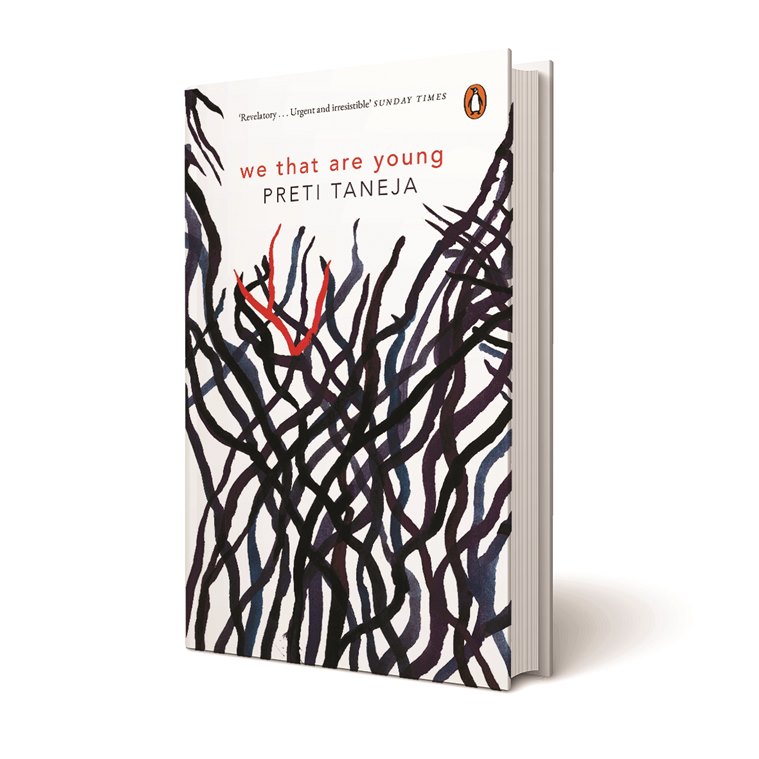Lutyens’ Lear
A Shakespeare classic gets a capital makeover in Preti Taneja’s debut novel.
Written by UMA MAHADEVAN DASGUPTA | Published: July 7, 2018 12:44:27 am

Preti Taneja’s debut novel We That Are Young, which has won the Desmond Elliott Prize this year — meant for fiction by new writers — is a racy, contemporary retelling of Shakespeare’s tragedy King Lear, set in twenty-first century Delhi. (Source: Wikimedia Commons)
The plays of William Shakespeare are endlessly adaptable and have seen some powerful retellings in different settings in time and place. Good adaptations speak to the concerns of the times and contexts in which they are set. Preti Taneja’s debut novel We That Are Young, which has won the Desmond Elliott Prize this year — meant for fiction by new writers — is a racy, contemporary retelling of Shakespeare’s tragedy King Lear, set in twenty-first century Delhi.
The aging patriarch Devraj Bapuji, descendant of a minor princely state, is Lear, and the kingdom he presides over today is the company that he has built — a vast business conglomerate with diverse investments ranging from Kashmiri shawls and soft drinks, to building concrete and luxury hotels. A magazine double spread describes him in breathless and worshipful terms, as certain business puff pieces tend to do: “Visionary Business man, Guru to millions, employer of thousands, head of the hundred-hotel Company…” With his three daughters Gargi, Radha and Sita, and his trusted lieutenant Ranjit, the billionaire tyrant rules over his empire from a vast gated estate called the Farm. The estate is traversed by golf cart, furnished in Fendi and surveilled at every moment by CCTV.
It could almost be a soap opera, but for the chain of events that follow. The novel begins with Ranjit’s illegitimate son Jivan taking a flight back to Delhi after fifteen years in the US. The country has changed almost beyond recognition from the time he left – or so it seems, at least. “For a freak moment, he wonders if he’s landed in the right city… The honking, bleating black and yellow Ambassadors he remembers are gone, replaced by a line of shiny white sedans waiting politely for fares.”
Sita, the old despot’s youngest daughter, has just returned from Cambridge.
The scene is set for her engagement celebration, but it is disrupted by her first act of disobedience.
Outside this tightly controlled environment, India is confronted with urgent challenges: drought, corruption, rising inequality. Inside the home, a set of equally brutal challenges: misogyny, feudalism, and the whims of the despotic patriarch. Women of the house get married soon after they turn eighteen; they serve their husbands before serving themselves at lunch; the tyrant beats a servant to within an inch of his life in a fit of rage; and, a scene with butchered peacocks strewn in the grounds begins a trail of violence and destruction that will continue for several hundred pages.
One weakness of the novel is the accretion of superfluous detail: first-flush tea, rose macarons, cutwork pink lehenga, gold thread border, sandalwood smoke, nimboo pani “squeezed from Farm lemons”. Sections of the narrative also feel loose and over-written, such as these lines about an anti-corruption protest in the city: “Gargi sees a bunch of girls, dark-skinned, in bright colours, clips in their hair and adorned with beaded jewellery — walking, draped all over each other as they claim the road. A lighter skinned woman is holding hands with one of the dark ones, her long hair is loose… How fierce they look, how free.” Firm editing could have kept the narrative tighter.
Despite these weaknesses, Taneja’s novel is a compelling study of greed, corruption and dangerous politics. It is about the advent of age; about feminism and power; and about the violence that can lie beneath the surface of the most innocuous cocktail party chatter. Finally, it is a gripping story, narrated in multiple voices and well-crafted sentences.
An academic and a human rights activist in Britain, the success of Taneja’s novel is also a reminder about the importance of independent publishers, and the need to support inventive new writing. Rejected by several publishers initially, the novel was finally accepted by the Galley Beggar Press — a small press which had also earlier published Eimar McBride’s A Girl is a Half-Formed Thing, an incandescent novel about a young woman’s sexuality, that also went on to win the Desmond Elliott Prize. Nine out of eleven times, this prize has been awarded to women writers: a reminder of the importance of such literary prizes in setting right earlier imbalances.
For all the latest Lifestyle News, download Indian Express App






















 We That are Young by Preti Taneja
We That are Young by Preti Taneja
No hay comentarios:
Publicar un comentario